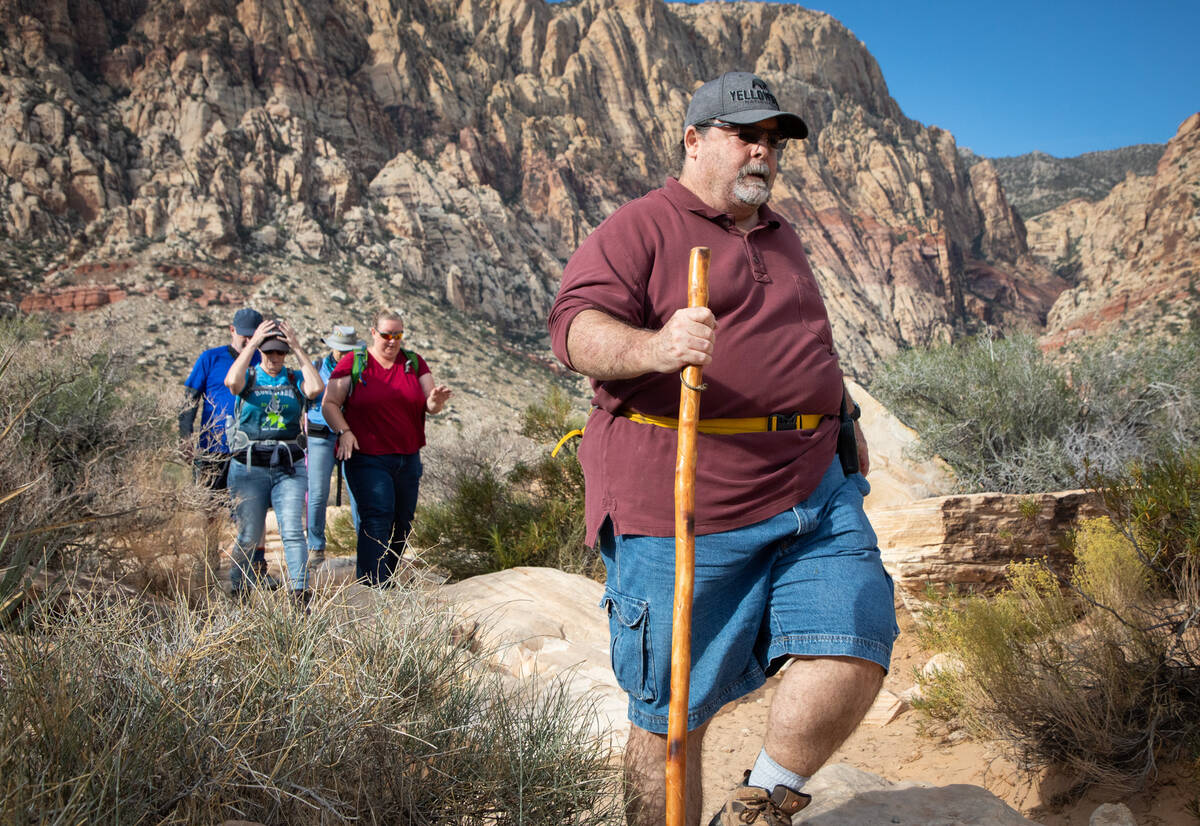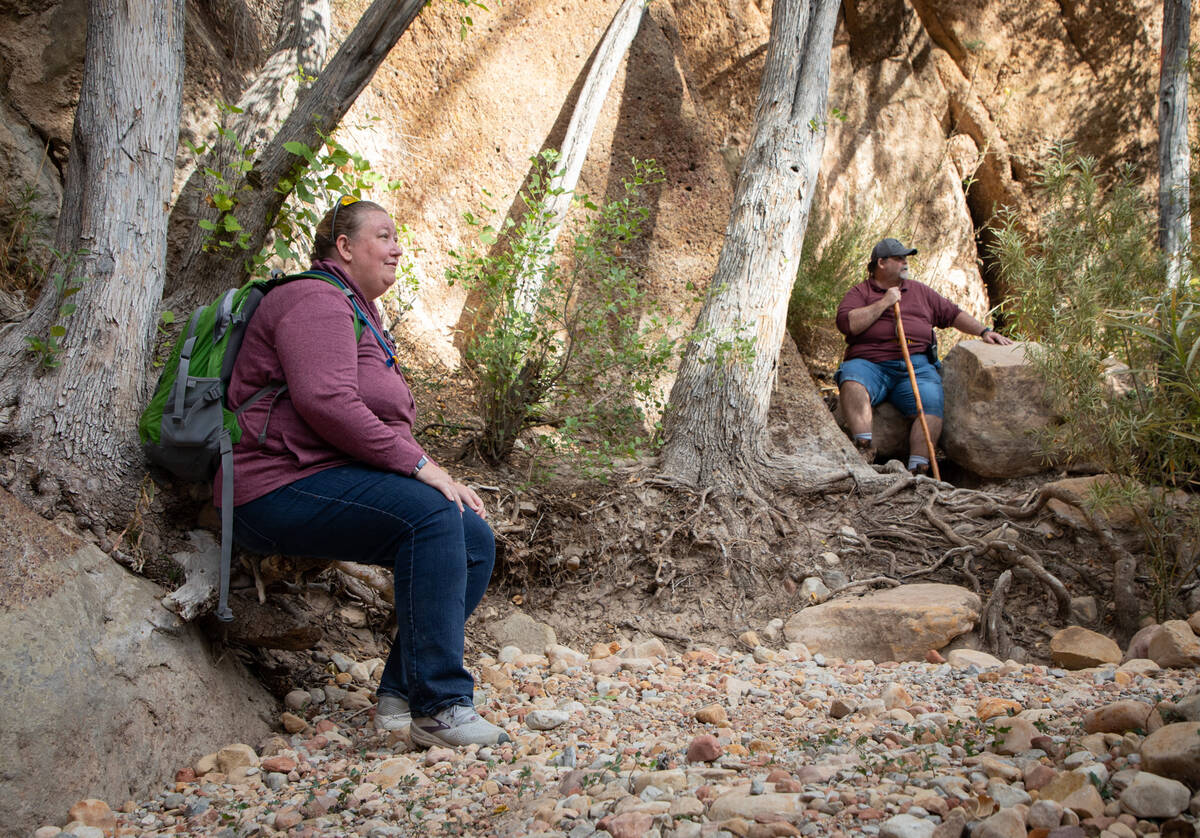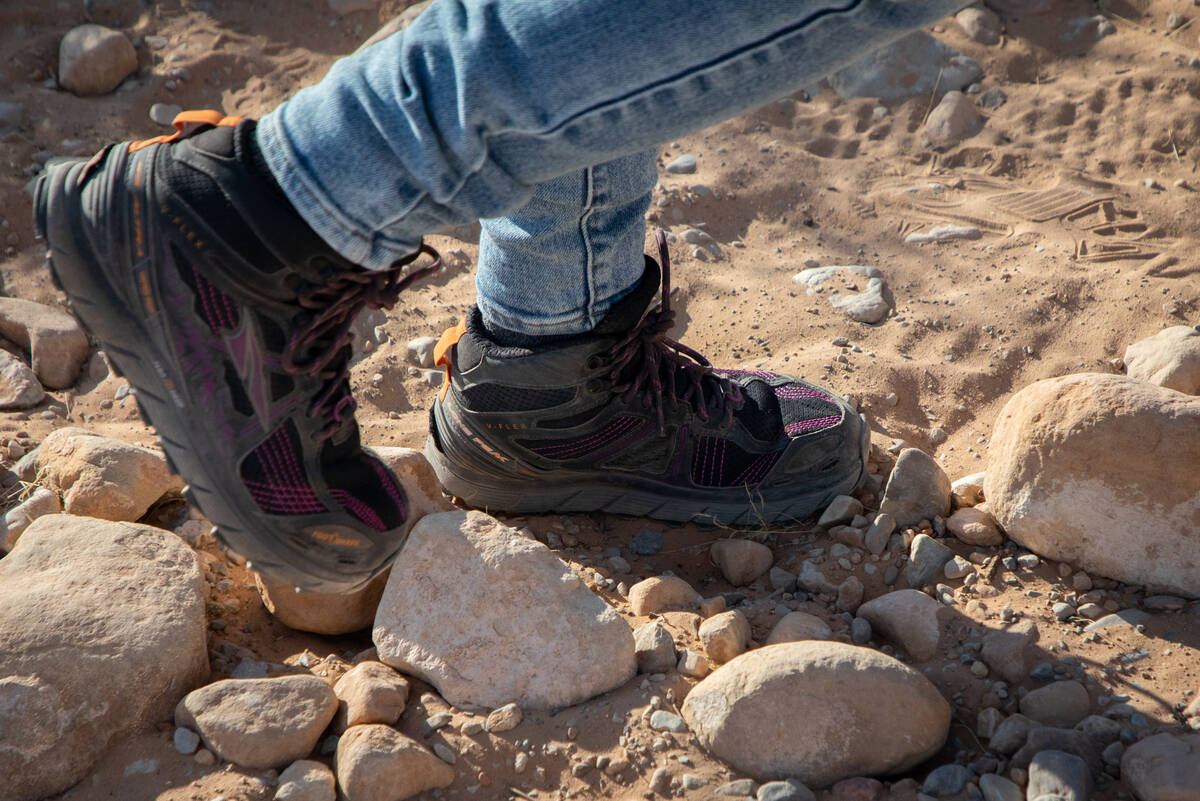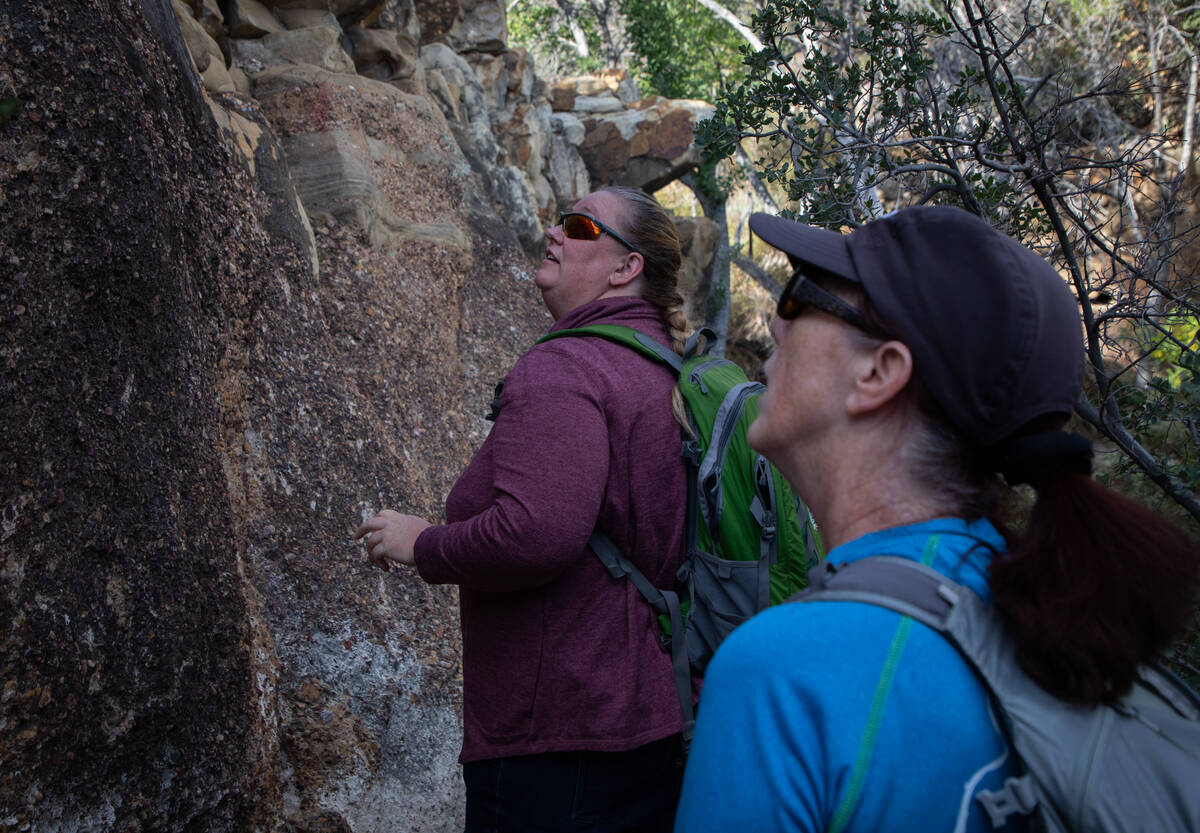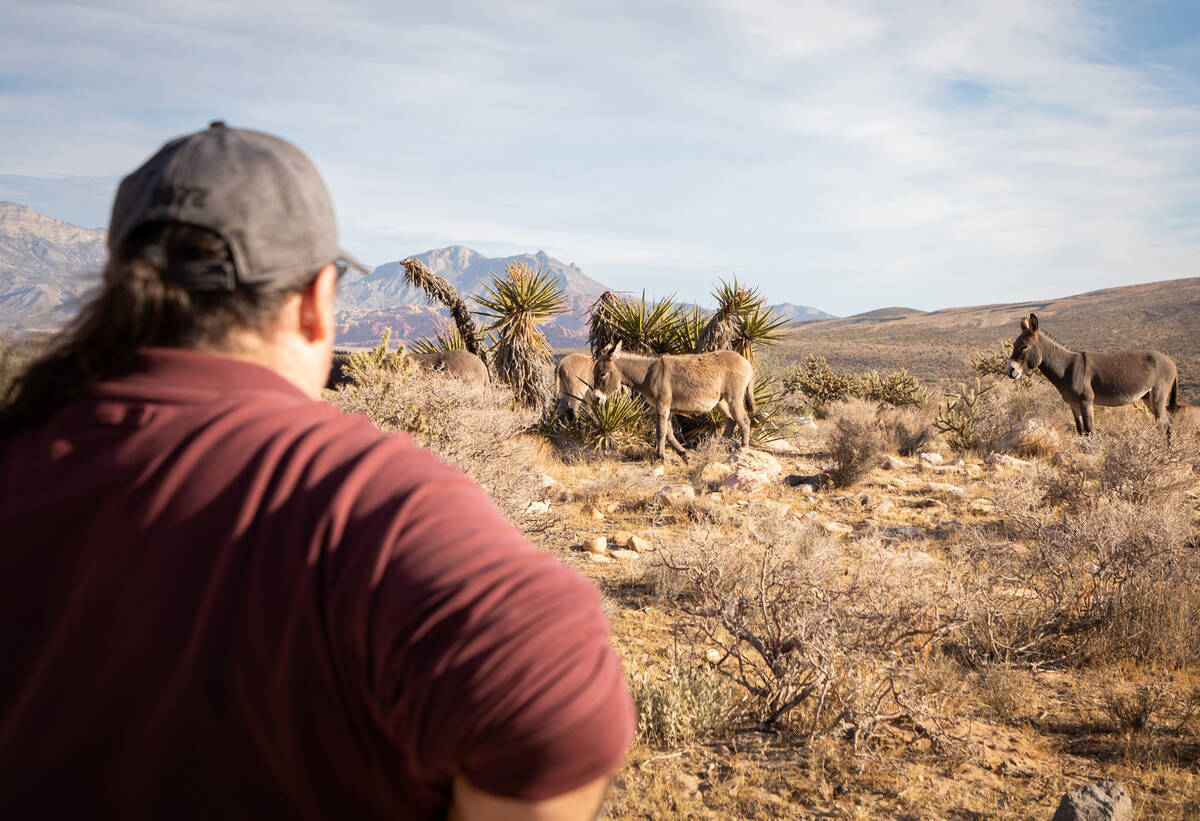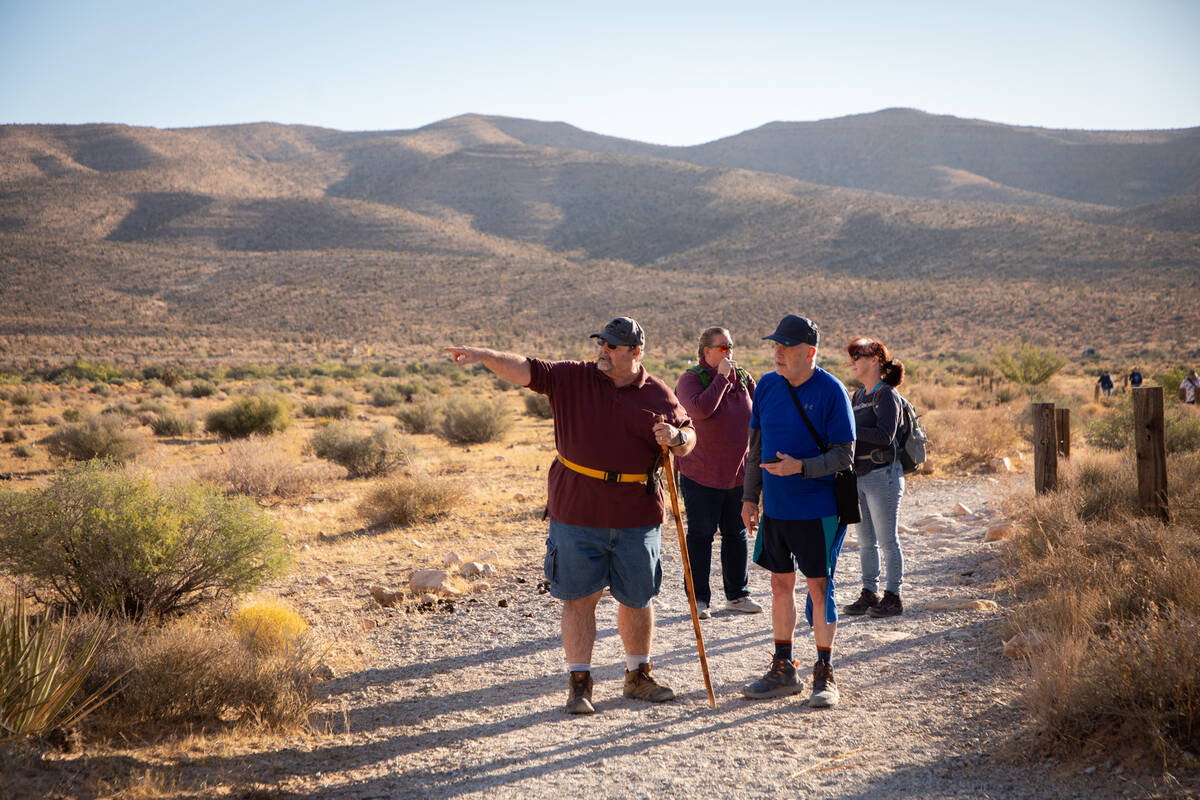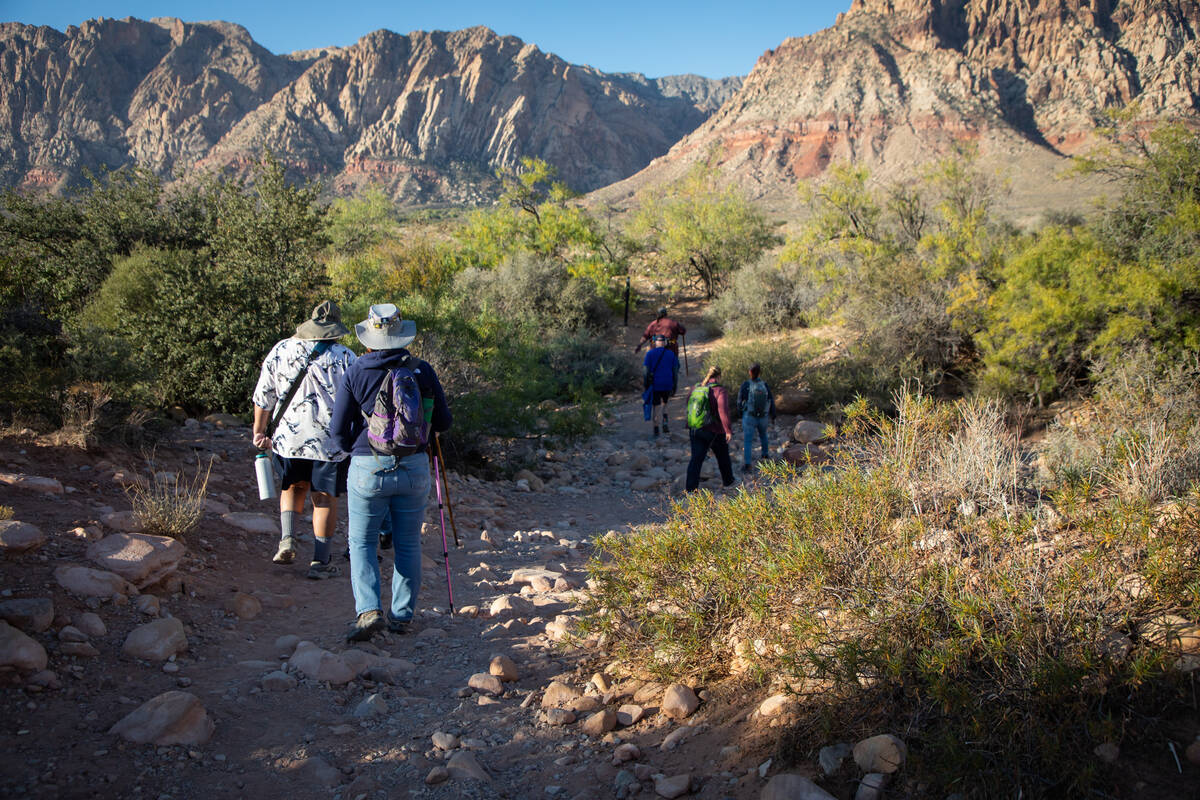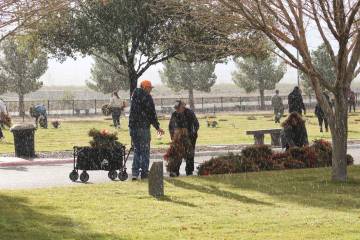Easygoing hiking club provides path to more active lifestyle
Maybe the name isn’t technically accurate anymore, at least when it comes to most of its members.
But calling the Meetup group Overweight Hikers for Health still is an effective way of telegraphing to newcomers exactly what it is about: sociable hiking in the great outdoors, with a laid-back focus aimed more at having fun than just crazily ticking off miles walked.
Besides, that name, and the group it describes, did grow out of the weight-battling experience of Richard Cumelis, who founded OHH in July 2013.
Cumelis had retired from the U.S. Air Force about five years earlier after 25 years of service and was experiencing, he now recognizes, “horrible depression.”
“I was highly successful in the Air Force,” he says. “The world outside the military was tough for me.”
He eventually put on more than 100 pounds. “The doctor told me I’d be dead in a year,” he says.
Cumelis began to look for a way to incorporate more physical activity into his life. He always enjoyed hiking but was uncomfortable about going alone, fearing what would happen if he suffered a medical episode or accident on the trail. He also feared the embarrassment of slowing down physically fit hikers in other hiking groups because he was so out of shape.
“If I went 100 yards I was gasping for air,” Cumelis says.
‘It just grew and grew’
His therapist suggested that Cumelis create a group for hikers like himself — average, maybe out-of-shape newcomers who might enjoy hiking but wouldn’t feel comfortable joining more advanced hiking groups. He figured group members could support one another and maybe even motivate each other to start out on the path to a more active lifestyle.
Four people showed up in August 2013 for the first hike of what Cumelis named Overweight Hikers for Health. “Then it just grew and grew and became its own thing,” he says.
OHH now has nearly 5,000 people who have signed up on Meetup and about 300 active members, Cumelis says. The group holds leader-led hikes — typically two to four each week — at local hiking hot spots, including Red Rock Canyon, Mount Charleston and Lake Mead. It also organizes hikes outside of Las Vegas at destinations that include Zion National Park in Utah, as well as occasional camping trips.
Hikes range from relatively easy walks of a mile or two to more challenging jaunts. And while some members do join to lose weight, others simply appreciate the group’s welcoming vibe and the hikes’ easygoing pace.
The goal is not to force-feed diet and health on people, Cumelis says, but to accommodate members wherever they happen to be in their fitness journey.
That “overweight” descriptor in the name is “meant to be non-intimidating,” Cumelis says. Most members aren’t even necessarily overweight, he adds, and include, for example, people recovering from injuries or surgeries.
Shared love of the outdoors
If there is a common denominator, it’s that members enjoy spending time outdoors with sociable people. Cumelis estimates at least three marriages have occurred within the group, and many friendships have been formed.
Vern Quever joined about four years ago and has been serving as a hike leader for just over two years. He was drawn to it in part by the group’s camping trips.
“I’ve done a few camping trips, but not as many as I’d like,” he says.
Quever also has been a hike leader for other organizations’ hikes and has noticed that OHH’s hikes tend to attract a more physically diverse crowd.
“Sometimes we’ll have slower people, which can be a little tricky,” he says. “I’ll wait. Sometimes slower people feel bad about waiting. I’ll tell them I enjoy waiting.”
‘It’s so welcoming’
Elsa Olson has loved to hike ever since going on organized hikes while attending college in California. But after school, during marriage and while rearing her children, hiking became “part of my life that was missing.”
After her divorce in 2017, Olson searched online for a leader-facilitated hiking group — “I didn’t want to get lost in the woods,” she says — and discovered OHH.
Her children were 15 and 18 then. “I reached out and asked Richard if my son and daughter could come and he said, ‘Sure, as long as they can keep up’ ” she says.
“It’s so welcoming to have different levels of hiking ability,” Olson says. “The hike leaders have radios and oversee each hike, keeping an eye on slower walkers.”
Olson also credits OHH with helping her kids develop a love of the outdoors. They’re now in their 20s, she says, and hikes with the group “helped them discover that in the valley year-round you can go hiking.”
Cumelis says OHH does serve as a way to introduce newcomers to hiking and the outdoors. It also can serve as an introduction to a healthy activity.
Overcoming intimidation factor
Dr. Gaurav Zirath, a family medicine physician with Southwest Medical, says hiking could be a way to contribute to the 150 minutes of moderate-intensity physical activity recommended for adults each week.
In addition to the physical benefits hiking would provide, research has shown that physical activity “decreases the risk of anxiety and depression and improves mental health, and that walking is a great way to get it,” he says.
Hiking with a group also can offer motivation to start and continue an activity, Zirath says. It also can help reduce the intimidation some people experience when starting a program of physical activity.
“Once you break down that intimidation barrier, people tend to do better, and they have a better chance (of maintaining it) for a longer period of time,” Zirath says. “And social interaction certainly helps.”
Even if the Overweight Hikers for Health name isn’t completely accurate, Olson thinks it works just fine.
“I think what our name does is make it less threatening for people who join,” she says. “If you’ve never done it before, and people are anxious to do it the first time … saying ‘overweight’ makes it less threatening.”
How to join a hike
Las Vegas Overweight Hikers for Health can be found at meetup.com/las-vegas-overweight-hikers-for-health.

